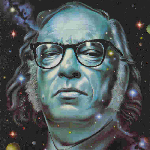|
To me the key difference between toasters, TV/movies, and video games is the interactivity portion. A toaster is at least partially interactive, but a bad movie is going to be a bad movie, even in the best of venues and with the best of friends. You just have to sit there and take it or turn it off. Yes a good film or book can spark discussions for hours and generate interesting conversation points, but that is true of practically all art forms. Video games are uniquely interactive and present the player with a degree of agency seldom provided by most art. I'm not sure if this really results in a more personal, evocative experience versus reading great literature however. I think it's safe to say that everyone has a very unique and individual experience when reading a classic novel and will react in a unique way. Books are at least linear and can be reduced to a formulaic book report or other summarizing format which makes them easier to talk about. Super Mario Bros. and most early video games are also linear and simplistic, but technology has allowed additional complexity to the point where emergent gameplay can take place. World of Warcraft, Dwarf Fortress, and Crusader Kings II represent very different experiences depending on the player, much the way that each person will differently experience a Monet painting. For me at least there is a certain ineffable substance to actually gripping the controller and playing through a game, confronting the challenges and guiding the character to one's chosen goal, through practice and force of will. There is a competitive aspect that any sports fan will recognize, but the field and rules change with each game. I don't think any of these points address how we should talk about video games, other than to place them in a unique category apart from the other visual arts. This makes it quite hard to critique or argue what makes a truly "great" game the way that we can label literature, paintings, film, and toast. When a player loads a game and begins playing, he is holding a mirror to his face and confronting his wants, desires, skills, abilities, and patience. I'm not arguing that this is a more profound experience than the self-reflection that most art can create, but it is tangible up on the screen for all to see. YOU DIED
|
|
|
|

|
| # ¿ May 22, 2024 17:16 |



